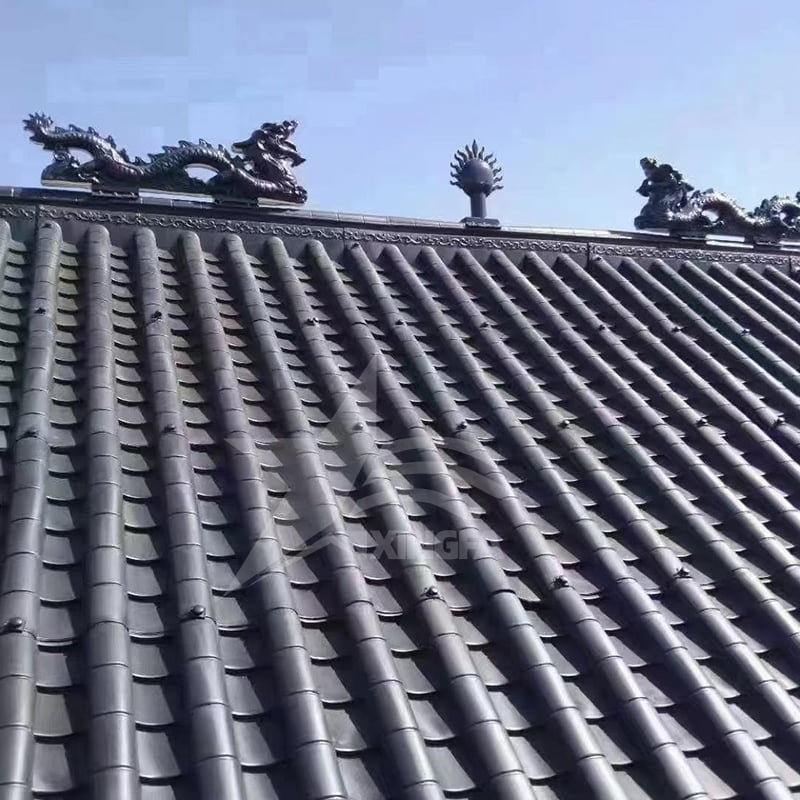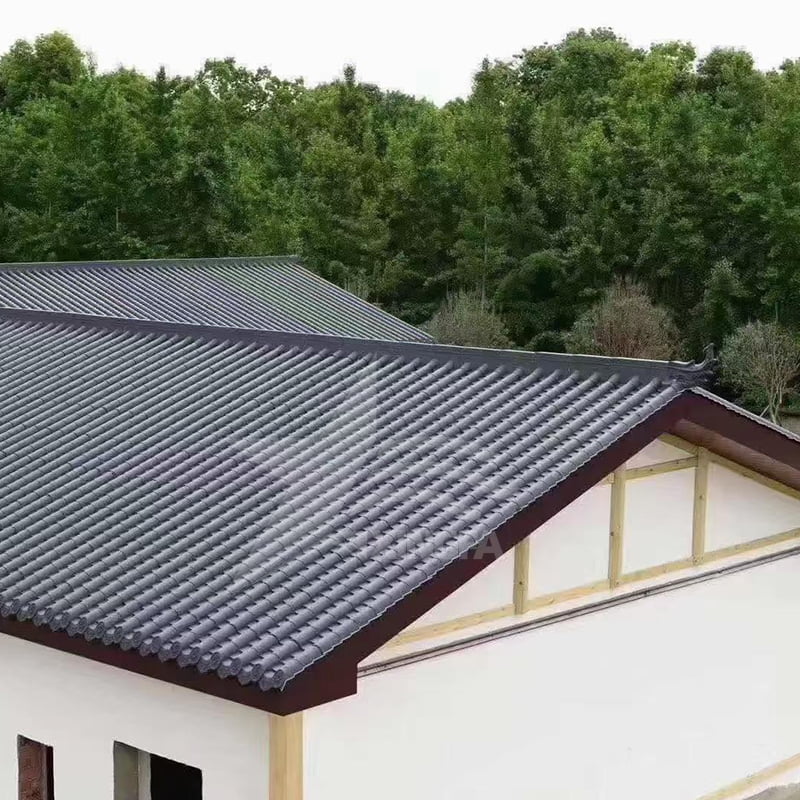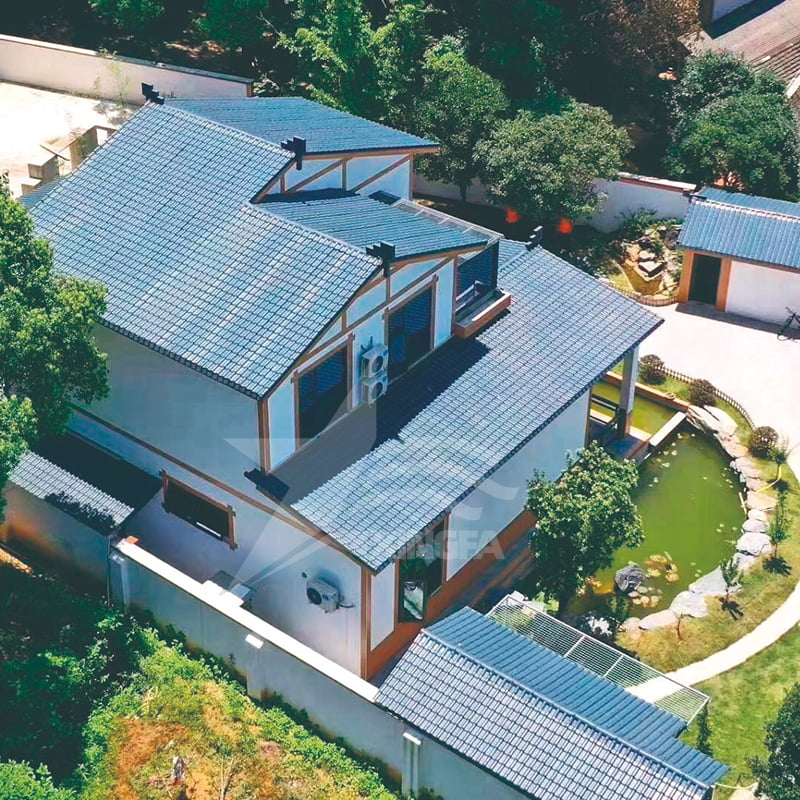Choosing the right roofing material is crucial, especially in regions with high rainfall. Synthetic resin Spanish roof tiles have gained popularity for their aesthetic appeal and durability, but are they suitable for areas with heavy rain? This article explores the benefits and considerations of using synthetic resin Spanish roof tiles in rainy climates.

1. Waterproofing Capabilities
One of the primary advantages of synthetic resin Spanish roof tiles is their excellent waterproofing properties. These tiles are designed to be highly resistant to water absorption, which helps prevent leaks and water damage to the underlying structure. The interlocking design of the tiles also ensures a tight seal, further enhancing their ability to keep water out.

2. Durability and Longevity
Synthetic resin tiles are known for their durability and long lifespan. Made from high-quality materials like Polyvinyl Chloride (PVC) and Acrylonitrile Styrene Acrylate (ASA), these tiles can withstand harsh weather conditions, including heavy rainfall. They are resistant to cracking, warping, and other forms of damage that can be caused by prolonged exposure to water.
3. Lightweight Nature
The lightweight nature of synthetic resin Spanish roof tiles is another benefit, particularly in rainy areas. Heavy roofing materials can place a significant load on the structure of a building, which can be exacerbated by the added weight of accumulated rainwater. Synthetic resin tiles, being much lighter, reduce this load, minimizing the risk of structural damage and collapse.
4. Ease of Installation
The ease of installation of synthetic resin Spanish roof tiles makes them an attractive option for homeowners and builders. Their lightweight and interlocking design simplify the installation process, which can be especially beneficial in areas where quick and efficient roofing solutions are needed due to frequent rain.
5. Resistance to Mold and Mildew
In rainy areas, the growth of mold and mildew is a common concern. Synthetic resin tiles are resistant to mold and mildew growth, thanks to their non-porous surface. This resistance helps maintain the roof’s appearance and structural integrity over time, reducing maintenance requirements and costs.
6. Energy Efficiency
Synthetic resin Spanish roof tiles also contribute to energy efficiency. Their reflective surface helps deflect sunlight, reducing heat absorption and keeping the building cooler. In rainy areas, this can be particularly advantageous as it reduces the need for additional cooling, thereby lowering energy costs.
7. Fire Resistance
Safety is a critical consideration for any roofing material. Synthetic resin tiles are designed to be fire-resistant, providing an added layer of protection for homes and buildings. This feature is especially important in regions where heavy rains might be accompanied by thunderstorms and lightning strikes.
8. Aesthetic Appeal
Beyond their functional benefits, synthetic resin Spanish roof tiles offer significant aesthetic appeal. They mimic the classic look of traditional Spanish tiles, adding a touch of elegance and charm to any building. This can enhance the overall property value and curb appeal.

Conclusion
Synthetic resin Spanish roof tiles are highly suitable for areas with heavy rainfall. Their waterproofing capabilities, durability, lightweight nature, ease of installation, resistance to mold and mildew, energy efficiency, fire resistance, and aesthetic appeal make them an excellent choice for wet climates. By choosing synthetic resin Spanish roof tiles, homeowners and builders can ensure a long-lasting, attractive, and protective roofing solution that performs well even under the most challenging weather conditions.
